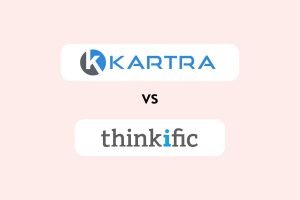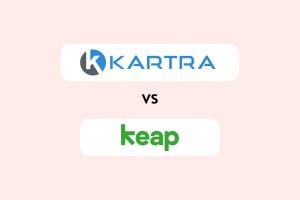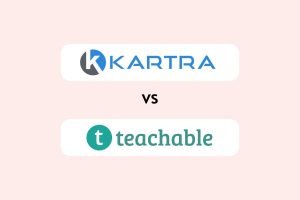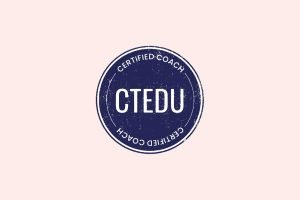Last updated on July 8, 2023
There is an important, and often misunderstood, tool that few coaches, even as business owners, are comfortable with. And I don’t blame you if you’re one of them.
This tool has been used at great lengths to harm, exploit, and manipulate people. It has been used to perpetuate the myth of scarcity. And it has also been used by influential business leaders as an excuse to overlook the detrimental outcomes of their growth-at-all-costs approach to business.
But this same tool has also been a doorway to countless opportunities where I have been able to offer value and change lives. It has been an invitation to create relationships built on trust and support. It has offered practice in serving others, being present, and actively listening. It has allowed me to generate sustainable income in my business. This tool is something your coaching business can’t succeed without.
The tool?
Enrollment conversations.
What are enrollment conversations?
An enrollment conversation is a dialogue designed to support potential clients in discerning for themselves if coaching is right for them. At the end of this dialogue, the client is asked a simple but powerful question: “Would you like to continue this work together?”
There are only three potential answers to this question: Yes, no, or I don’t know (more on this in a moment). Although coaches know the three possible answers to this question, most coaches don’t let themselves ask this question in the first place. But this question is the difference between growing your business or stalling out.
The vulnerability of asking
I’ve learned to love enrollment conversations with potential clients, but I didn’t start there. In my early days as a coach, when a consultation appeared on my calendar and the time came to call them, my palms would get instantly sweaty and my heart would pound. I used to beg under my breath, “Please don’t pick up!”
I wasn’t afraid to coach—I was afraid to ask others if they really wanted to keep coaching with me. The first time someone said yes, I was so shocked that I actually talked them out of their decision. The idea that someone found me valuable enough to hire—let alone pay—was something I wasn’t used to yet. But looking back on those early days, it wasn’t the money that spooked me; it was the ask.

Asking someone to hire you is vulnerable. Period. It’s so vulnerable that companies spend millions of dollars each year training their sales teams to better control the outcome of this process so that they can reduce their noes and increase their yeses.
But many of those yeses also come with a cost. If you Google “sales training,” you get 1.5 billion hits. That seems like an awful lot of advice for a question as simple as, “Would you like to continue this work together?”
When I ask coaches in my community how often prospective clients flat out tell them, “I have zero interest in learning more about working together,” the response is silence—because almost nobody reaches the ask in the first place.
But there is something that, as a woman in service, it took me a long time to get a clear perspective on: We’re taught to be grateful for what we have, which makes us reticent to ask for what we want. As Abby Wambach states in her book Wolfpack,
“[…] I spent most of my time during my career … just feeling grateful. I was so grateful for a paycheck, so grateful to represent my country, so grateful to be the token woman at the table, so grateful to receive any respect at all that I was afraid to use my voice to demand more for myself – and equality for all of us … Our gratitude is how power uses the tokenism of a few women to keep the rest of us in line.”
When I started my business, I was just grateful to earn any amount of money and have coaching conversations. But I didn’t grant myself the vision to go beyond that and actually get clear on what I truly wanted—and had the right to ask for.
Maybe it was my inner people-pleaser or the role of conflict resolver I’d played most of my childhood, but asking for something not only felt wildly uncomfortable, it felt widely unreasonable.
I used to believe that if someone wanted to work with me, they would tell me, and I wouldn’t have to make the vulnerable inquiry. Turns out, this is rarer than rare. My prospective clients felt it was just as unreasonable to assume I wanted them as a client as I believed it was unreasonable to ask.
See the conundrum here?
The solution seemed obvious: Start asking. But that was easier said than done. It wasn’t that I didn’t know how to ask a question. It wasn’t that I didn’t know the question to ask. I had to address one mighty and deep-rooted fear wrapped up in the ask itself: the fear of rejection.
And I know I am not alone here.
We fear that our request will risk something non-negotiable: belonging. We fear that a “no” isn’t just a no to our request; it’s a no to us. We have been shown over and over (especially woman-identifying individuals) that asking and being rejected means risking our own worthiness.
There it is. The thing I think we are more protective of than our belonging: our sense of enoughness.
This is why it seems easier to just be grateful at times. There are times when just being grateful seems like the easier option. It helps us avoid questioning our self-worth, and when we focus on gratitude, we don’t feel like we’re inadequate. But what about when that same gratitude also has us holding back? What becomes possible when we instead associate the ask with fully advocating for ourselves? Gumption.
We’re taught to be grateful for what we have, which makes us reticent to ask for what we want.
I have never met a woman coach who wasn’t perfectly clear on what she wanted to do with her work, who she most wanted to serve, how she wanted to be paid, and what it all meant to her. Yet, most still tell me, “I need more clarity.”
Clarity is not your problem. Asking for what you’re perfectly clear about is the problem. And the only way through the illusion of clarity to the liberation of gumption is to start asking.
After you ask what once felt like a totally unreasonable question—“Would you like to continue this work together?”—comes the really scary part: the response. Once you ask, it’s out of your hands. But there’s some really good news: The only three potential answers to this question are yes, no, or I don’t know.
A yes is something to celebrate.
A no stings. But trust me, you will get great at accepting them as part of the ask.
Navigating “I don’t know” responses
Where we get tripped up is the “I don’t know” response. An “I don’t know” comes in many shapes and sizes. Sometimes it’s a kinder route to a “no” and sometimes, a genuine uncertainty your prospective client needs to work their way through.
Here are the most common variations of the “I don’t know” response:
“I don’t know”
An “I don’t know” is an invitation to ask more coaching questions. What specifically don’t they know about? What questions can you ask to clarify? An “I don’t know” is a coaching gift because they’re telling you this: “Solve X, and we’re good to go!”
This is not the place to start feeling shut down or suddenly downshift the conversation to an email follow-up. When a potential client says, “I don’t know,” they are being honest—but there’s also more to the story. There is often a scenario in their mind where they are a firm “yes,” but until you reach this information, you can’t open the relationship further.
After you ask what once felt like a totally unreasonable question—“Would you like to continue this work together?”—comes the really scary part: the response.
So remember to keep your coach hat on and ask genuine questions. As much as possible, I avoid ending enrollment conversations with potential clients with an “I don’t know.” Instead, my goal is always to reach a yes, get to a no, or schedule a follow-up.
“I have to ask…”
Investing in working with you is a big deal. There’s the financial cost, immersion in a deep process, and personal change on the line. Very few of us, myself included, make such an important decision on our own. So it’s likely that many of your potential clients will talk this decision over with a significant other, for example. Don’t coach them out of this. You want them to begin this work from a congruent place, which includes the support of their significant other(s), friends, and family.
“I can’t afford it”
If you’re firmly rooted in scarcity, then this feedback might prompt you to challenge a potential client’s focus on affordability. But first, pause and consider this: Your potential client might legitimately be unable to afford you. They might not feel that coaching is a service worth paying for. They also might need to decide if you and your process are worth getting uncomfortable for.
“I want to start later”
This is by far the most common of all the “I don’t know” variations. Many people employ the better future fallacy—the assumption that, in the future, they will magically be more ready and able to invest in coaching. Ironically, we are prone to recreate our present circumstances tomorrow if we don’t shift our thinking today.
I am totally content with a potential client agreeing to start the work later on while paying a small deposit to hold their spot and keep their commitment. Similar to the “I don’t know” response, my goal is to reach a clear yes in the future (with a deposit), get to a no, or schedule a follow-up.
An invitation to ask differently
Here’s my loving challenge for you for the next 90 days: Don’t track how many noes and how many yeses you get. Track how many times you ask the question. Remember, this question can only remain in the land of the unreasonable as long as it’s withheld from being asked.
Enrollment conversations are the starting point for your work, and purpose, as a coach—and all the ways you want to impact the world through it. And it all begins with a simple yet powerful question: “Would you like to continue this work together?”
Editor’s Note: To learn more about Andrea and her work, read our interview with her, as well as her other articles here at Life Coach Magazine.

Andrea Leda
Andrea Leda is a sought-after master coach, teacher, and mentor with over 10,000 hours of coaching experience since she began her practice in 2010. She is dedicated to helping each of us learn to trust our own innate value and worthiness so that we can show up for the work we’re truly here to do.
By harnessing her deep and practical knowledge of powerful coaching techniques—including NLP, journal therapy, mental emotional release work, and BodyMAP coaching—Andrea supports heart-centered coaches and visionary change-makers in reaching their fullest potential in both life and business. In her coaching work, she has been called "a force to be reckoned with and a brave woman who truly makes this world go round.”
In 2022, Andrea founded Braver Coach—a mission, a community, and an educational platform for coaches who are reimagining coaching by bringing forth all of who they are. As a certified training organization through the Association of Coaching, Andrea equips coaches so that they feel empowered to do the work they are called to do—and help their clients and communities do the same.
















Be First to Comment